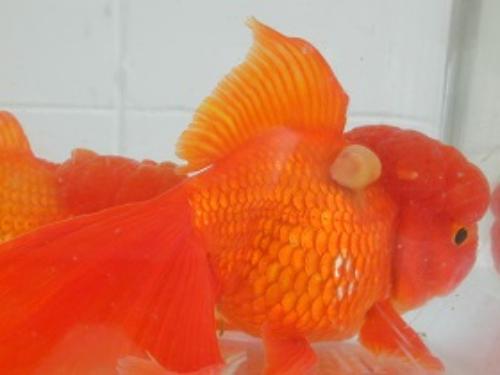Diagnostic Laboratory
Please speak to someone in the diagnostic lab before collecting and packing samples for the lab. Talking to us ahead of time allows us to discuss which specimens would be best, how many we need, and how to package and transport them in the most appropriate way for diagnostics, which may be different than your standard shipping protocols. Contacting us will also ensure that we do not have other cases submitted at the same time and are not out of the office visiting other farms, so we can examine your fish in the timeliest manner.
Debbie Pouder, Diagnostic Lab Manager: 813-671-5230 x106 / dbpouder@ufl.edu
- or -
Roy Yanong, Veterinarian: 813-671-5230 x104 / rpy@ufl.edu
The Fish Disease Diagnostic Laboratory at the UF/IFAS Tropical Aquaculture Laboratory (TAL) offers a wide range of services. A water chemistry analysis and necropsy (including initial bacterial culture) are the basic services required in most cases. Lab personnel work with the client to determine if further tests are needed or desired. Most tests are performed on-site though some procedures, such as histological processing and virology, are conducted by off-site laboratories. As with any veterinary practice, the Tropical Aquaculture Laboratory adheres to a strict policy of client confidentiality.

- Water chemistry analysis
- Live exam with external tissue biopsies
- Necropsy
- Bacterial culture
- Bacterial identification
- Antibiotic sensitivity
- Health certificate
- Histology
- Virology
- Other tests
Service Details |
|
Water Chemistry AnalysisStandard Freshwater Analysis
Additional Tests Available
|
Standard Saltwater Analysis
|
Live Exam with External Tissue Biopsy
Live exams may be performed on certain fish which cannot be sacrificed, such as valuable broodstock, large stock enhancement fish, or fish for exportation. Evaluation may include a gross visual exam and microscopic examination of samples of gills, fin, and skin. Blood for bacterial cultures or other tests may be collected from large fish. It is important to note that a live exam is relatively narrow in scope, will provide limited information, and may or may not result in a definitive diagnosis.
Necropsy
A necropsy is a post-mortem (after death) examination of an animal. Whenever possible, a minimum of four live, sick fish should be submitted to the laboratory. Fish are evaluated during a gross visual exam, and gill, fin, and skin samples are taken for microscopic examination while the fish are still alive. After the fish are euthanized, the brain and posterior kidney of three to four fish are cultured for bacteria. The spleen, liver, and other tissues may also be cultured in larger fish. Following bacterial cultures, complete gross and microscopic exams of the internal organs are performed.
Bacterial Culture
Bacterial cultures are performed as a part of the necropsy but may be performed separately if warranted. Fish samples from relevant tissues are routinely cultured on tryptic soy agar with 5% sheep's blood (TSA+B). Special media may be available/used when necessary.
Bacteria Identification
If bacteria is cultured from the tested fish, it is identified in-house using a Biolog MicroLogTM semi-automated microbial identification system. In some cases, it may be necessary to submit bacteria cultures to an outside laboratory for identification via polymerase chain reaction (PCR).
Antibiotic Sensitivity
If bacteria are cultured from the tested fish, an antibiotic sensitivity test is run to determine which antibiotic(s) will be effective in treating the bacteria. This step is crucial for planning the best treatment and reducing issues with antibiotic resistance.
Health Certificate
Most importing countries require that a USDA-accredited veterinarian at least visually examine all (or a representative sample) of the animals being shipped. (USDA-accredited veterinarians are private veterinarians who have special training and can legally sign official USDA health certificates.) Some countries require additional diagnostic tests for specific diseases. Some states within the U.S. also require testing for certain diseases and/or health certification for interstate transport. The extent of the veterinary inspection depends on the requirements established by the importing country or state, not the veterinarian or USDA. The veterinarian will usually charge for this service regardless of whether or not the shipment passes inspection. It is, therefore, in the exporter’s best interest to be confident of the good health of the animals before scheduling an inspection. Plan ahead when scheduling a shipment requiring health certification to ensure that a USDA-accredited veterinarian and, if necessary, a USDA APHIS Veterinary Services area official are available to perform the inspection. The UF Tropical Aquaculture Lab has USDA-accredited veterinarians who can perform the necessary inspections of fish and aquatic invertebrates for Florida aquaculture producers.
Histology
Histology is the study of cells and tissues on a microscopic level. It allows for a much closer and more detailed evaluation than wet mount biopsies performed during a typical necropsy. In most cases, tissues which have been preserved in a fixative (such as 10% neutral buffered formalin) are embedded in paraffin, sliced into extremely thin sections, mounted onto a slide, deparaffinized, and stained. Different stains are used to target different structures, conditions, and organisms. Tissues are preserved at the Tropical Aquaculture Laboratory during necropsy (when warranted or requested) then sent to a histopathology lab for processing. The prepared slides are evaluated at the Tropical Aquaculture Laboratory and may be sent to a pathologist for further evaluation.
Virology
Fresh, whole fish or fresh tissues (prepared at the Tropical Aquaculture Laboratory during necropsy) are submitted to University of Florida Wildlife & Aquatic Veterinary Disease Laboratory, which specializes in virology, for detection of viruses through polymerase chain reaction (PCR), cell culture, or electron microscopy. Samples may also be sent to other colleagues or laboratories as necessary.
Other Tests
Other available tests include Mycobacterium culture, Mycobacterium identification, and acid fast bacteria benchtop stain. Please contact the Lab if you need assistance with tests not specifically listed.
